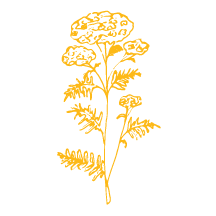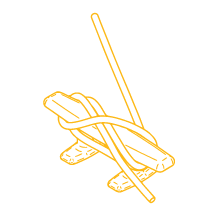
“the mind forgets in order to remember
the self before the violence begot.”
—from We Drink at the Attenuation Well by Porsha Olayiwola
Trauma shapes our every bend.
I was thinking this the other day, the tight knot returned just above my right shoulder blade.
I have begun another drawing: cobalt blue lines twist, turn, and creak in angular meander; lyric abstraction—a modest dirge. Leonard Cohen on repeat, I wonder: will I ever stop dreaming of my little girl alive? (My personal trauma, so present.)
The Boothbay Register reports all those who pass—we are an older community, so of course we are losing our own. Round and round the Dogfish Head we go, grumbling at our stuttering gait until our last day comes.
“Black Lives Matter” on a DC street spawns murals around the world, their many hues all equally visible from outer space. Fists raised and masks on, millennials cry, “Say their names!” Jon Baptiste grooves with New Orleans swagger down New York avenues—a jazz uprising within the uprising. (Collective pain claiming a global voice.)
The worldwide demand for justice sparks growing recognition of our own roles—individual, inherited—in the trauma of others (the Etchemin here long before those of European heritage, their language and tribe alike erased under the skidmark of our advance.)
Trauma shapes our every bend—warping our choices and ways as much as our bodies.
(And yet to one another, we merely nod; we say, in passing, “hello.”)
“the mind forgets in order to remember
the self before the violence begot.”
Might our “hello” flex more toward full-throated fellowship were we to remember the salt and tears we share; the wounds we give as good as we get?
In recalling that trauma shapes our every bend, I am kinder toward myself and others.
And therein lies the blessing of it all.




